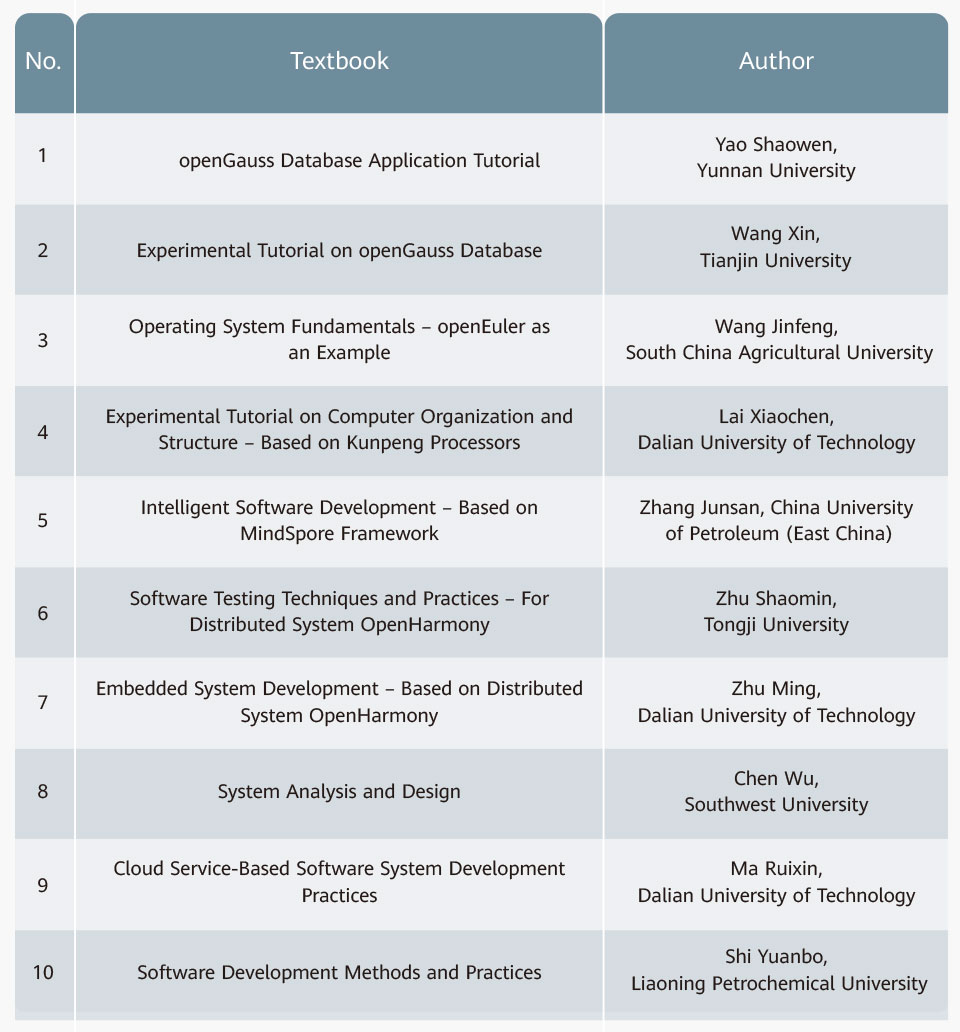Industry Ecosystem
How PSESA Facilitates Software Talent Development
PSESA and Huawei are collaborating to cultivate digital talent for the software industry, which will in turn help shape the digital world.


By Lu Wei, President, Pilot Software Engineering Schools Association; Professor, School of Software Engineering, Beijing Jiaotong University

In the past, long-distance communication consisted mainly of phone calls and SMS. Today, instant messaging apps have made communication easier than ever. We used to have to carry our wallets when we went shopping, but now even the smallest roadside stalls accept QR-code-based mobile payments. In the past, we had to wait patiently for a taxi on the side of the road, but nowadays we enjoy online car-hailing services simply by entering our destination on an app.
For enterprises, industrial software plays a crucial role in modern manufacturing and improves manufacturing and innovation capabilities, which in turn can boost national economies.
Software is the heart of the ICT industry, and talent is a crucial factor in the development of the industry. The Pilot Software Engineering Schools Association (PSESA) works with Huawei to bring together resources for developing software talent by jointly developing teaching materials and training teachers.
Pressing demand for quality software talent
The software industry is a fundamental and strategic part of any national economy. It plays a crucial role in promoting economic and social development, transforming economic growth models, improving economic efficiency, and integrating digitalization with industrialization.
However, to power the development of the software industry, there is an urgent need to accelerate talent training. According to a document issued by China's State Council, in December 2001, the Ministry of Education (MOE) and the former State Planning Commission approved the establishment of 35 National Pilot Software Engineering Schools. In 2003, the number increased to 37, and in 2014, the Department of Higher Education of MOE approved the establishment of PSESA, the secretariat of which was established in the School of Software Engineering at Beijing Jiaotong University.
PSESA is committed to promoting collaboration between universities in degree programs and for developing software engineers. The association organizes events and activities in fields like degree programs, curriculum development, disciplinary management, preparing teaching materials, teacher training, university-enterprise collaboration, and internationalization. These events and activities serve as a platform for knowledge sharing and driving software talent cultivation in universities and the development of China's software industry. To date, PSESA has 191 college and university members.
Collaborating with Huawei to develop specialized software talent
PSESA and Huawei have collaborated closely to accelerate the development of the software industry. In October 2017, the association enabled Huawei and 25 pilot software engineering schools to jointly apply for and obtain membership in the New Engineering Research and Practice program of the MOE. PSESA also organized workshops on advancing New Engineering projects and facilitated the signing of memoranda of cooperation.
PSESA and Huawei have also collaborated to introduce Huawei's technologies and software into universities and incorporate them into courses and teaching materials, thereby facilitating the cultivation of specialized software talent. Today, the integration of industry and education is a key trend in higher education and a catalyst for industrial development. PSESA and Huawei are committed to cultivating software talent and are working together in areas like developing teaching materials, teacher training, and improving colleges.
Collaborating with Huawei on teaching materials for software engineering
In 2021, the PSESA and Huawei launched a collaboration project to support the development of teaching materials. The project selected exceptional teachers from PSESA member universities to plan and compile 10 textbooks as part of a software engineering series (as shown in Figure 1).

Figure 1: PSESA's textbook series on software engineering
Drawing on the strengths of PSESA, Huawei, university authors, and Higher Education Press in their respective areas, the textbooks incorporate both theoretical knowledge about software technologies and practices to prepare students for technology evolution and industry development.
As the result of collaboration between industry, universities, and researchers, these textbooks integrate cutting-edge technologies and project-based practices with the teaching and research needs of universities. These different elements complement each other and ensure the quality of the textbooks.
Huawei provides a plethora of case studies based on real-world applications and projects to help students develop hands-on skills and problem-solving capabilities. The textbooks are methodically organized, linking different knowledge points and using a logical progression to build knowledge. They also provide abundant auxiliary teaching materials adapted to real-world applications at universities. These materials include courseware, teaching plans, source code, lab manuals, and teaching syllabi. The textbooks follow an approach of integrating teaching, learning, and hands-on practice.
This textbook series is applicable to university undergraduate programs in computer science and software engineering, as well as innovation and entrepreneurship courses at key universities. The series helps foster innovative teaching methods and software engineering practices, and plays a significant role in improving degree programs at software engineering colleges, talent cultivation, and school-enterprise collaboration.
PSESA held several workshops with Huawei and university authors to ensure the quality of the textbooks and discuss issues such as textbook positioning; outlines; challenges in teaching software engineering, teaching systems and case study design; and engineering training through hands-on projects. The textbooks are expected to be available by the end of 2023.
Collaboration on teacher training with Huawei ICT Academy
With the implementation of China's strategy of invigorating the country through education and a surge in independent innovation in the country, the adoption of domestically developed education technologies has become a trend in college and university education. An increasing number of universities are adopting an innovation-driven approach that integrates technology with teaching. They are actively exploring and applying domestically developed technologies, establishing specialized courses for developing innovative talent, and developing hands-on projects in foundational software technologies used for AI, openEuler, and openGauss. These technologies allow them to equip teaching staff with more advanced capabilities, which will foster more competitive software talent with strong hands-on skills.
Teachers play a vital role in college and university education. That is why PSESA has collaborated with Huawei to deliver fundamental software training for teachers. University teachers learn about fundamental software technologies, such as those related to AI, openEuler, and openGauss, by taking classes, participating in hands-on activities, and taking exams. This type of training improves teachers' engineering skills and helps them incorporate fundamental software technologies into their curriculum.
The association has also encouraged universities to work with Huawei to establish a Huawei ICT Academy to foster new types of ICT talent. In addition, top experts from PSESA member universities have also participated in the Huawei ICT Competition to provide strong technical guidance and support.
PSESA's approach to education is people-centric, ability-focused, industry-oriented, and world-embracing. The association, together with its member universities and top enterprises like Huawei, has actively explored talent cultivation through integration and collaboration between industry and teaching, across different professional areas, and across countries. As a result, we have created a high-quality software talent cultivation system that underpins and guides industry development. Over the past 20 years, the 37 National Pilot Software Engineering Schools have enabled about 250,000 individuals to foster their software talent, leading the way in the development of the software industry.
Looking ahead, PSESA is ready to collaborate with enterprises like Huawei in more areas to help universities reshape their talent cultivation models to accelerate the growth of software talent. We are confident that these talented people will make significant contributions to the advancement of China's software industry.
- Tags:
- Digital Transformation





